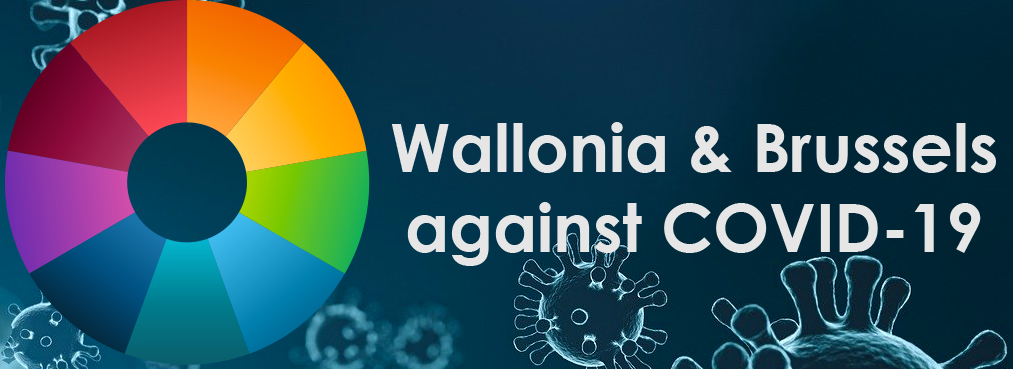UCLouvain, Cliniques universitaires Saint-Luc - FNRS
" "Telomeres are non-coding DNA sequences located at the end of chromosomes. In highly dividing cells, like embryonic stem cells and germ cells, telomeres are maintained by the telomerase complex. In the absence of telomerase activity in normal somatic cells, telomeres shorten after each cell division, ultimately leading to cell senescence or apoptosis. Telomeres are thus considered as ""molecular biological clocks"", closely related to ageing. Short telomeres syndromes (STS) have been identified, that are linked to genetic mutations affecting compounds of the telomerase complex, or proteins with crucial roles in telomere protection, and resulting in various conditions including lung fibrosis and aplastic anaemia (1). Bone marrow failure in STS results from the premature exhaustion of hematopoietic stem cells and, overall, tissues from STS patients suffer from premature senescence that likely drives the organ failures. Interestingly, recent data suggest that telomere length (TL) could infer with immune response to acute viral infection (2, 3) and a recent study showed that longer TL was associated with a better survival in septic patients (4). Underlying mechanisms may involve leukocytes dysfunction and early exhaustion of stem cells in patients with shorter telomeres. Outcome of the current coronavirus-induced disease (COVID)-19 pandemic is highly heterogeneous among hospitalized patients, ranging from people requiring low doses of oxygen to people admitted in ICU and dying from respiratory failure. To date, the strongest factor associated with severe disease and death in COVID-19 is older age. Lymphopenia is yet another risk factor for poor outcome (5). Those two elements point towards a potential role for telomere modulation in COVID-19. In line with our current knowledge of telomere biology, we thus hypothesize that shorter TL might be linked to poorer outcome in COVID-19. Similarly to influenza and SARS-related infection, we expect that a significant proportion of patients who experienced COVID-19 will exhibit irreversible lung scaring and fibrosis (Fig 1) (up to 60% in SARS-Cov-1 (6)), burdened with long-term morbidity and mortality (7). Here too, TL may be a predictive marker as lung fibrosis is another hallmark of STS patients. We will thus address the following hypotheses: 1. Telomere length correlates with COVID-19 clinical outcome 2. Telomere length predicts COVID-19-related subsequent lung fibrosis" "
Funding: The TELECOVID protocol is currently supported by local funding (both Hospital and University).
Publication References: Telomerase-related monogenic lung fibrosis presenting with subacute onset: a case report and review of literature. Planté-Bordeneuve T, Haouas H, Vanderheyde K, Froidure A. Acta Clin Belg. 2019 Dec;74(6):445-450 Defects in plasmacytoid dendritic cell expression of inducible costimulator ligand and IFN-a are associated in asthma with disease persistence Froidure A, Vandenplas O*, D'Alpaos V, Evrard G, Pilette C* Am J Respir Crit Care Med 2015 Aug 1;192(3):392-5 Impaired telomere integrity and rRNA biogenesis in PARN-deficient patients and knock-out models. Benyelles M, Episkopou H, O'Donohue MF, Kermasson L, Frange P, Poulain F, Burcu Belen F, Polat M, Bole-Feysot C, Langa-Vives F, Gleizes PE, de Villartay JP, Callebaut I, Decottignies A*, Revy P* (*: co-corresponding authors) EMBO Mol Med. 2019 Jul;11(7):e10201
Contact: Prof Antoine FROIDURE, pneumology department, Cliniques universitaires Saint-Luc and Institut de Recherche Expérimentale et Clinique, UCLouvain This email address is being protected from spambots. You need JavaScript enabled to view it.
Comment: This prospective academic trial is still ongoing and recruiting patients. At the time of the present application, we have prospectively included 72 patients for whom we have full access to clinical data and blood for TL measurement. Autopsy lung tissue from 7 patients is also available from our local biobank for staining.
University
Fast access
Various
Contact us
Brussels & Wallonia against COVID19


